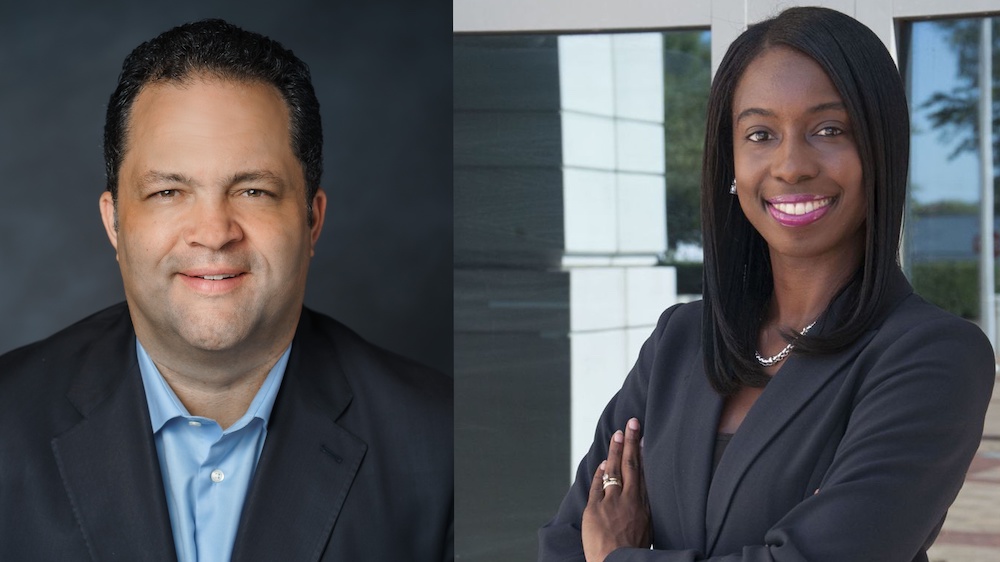If you’re interested in sharing your opinion on any cultural, political or personal topic, create an account here and check out our how-to post to learn more.
____
Written by Ben Jealous and Stephanie Morales
____
If there were any doubt that our democracy is hurting and in need of emergency first aid after our tumultuous elections, the January 6 Capitol insurrection put it to rest. On that day, a deadly riot erupted when some lawmakers refused to accept Joe Biden’s and Kamala Harris’s historic Electoral College victory.
And while the victory was ultimately certified by Congress as the law requires, the Electoral College’s antiquated and, in many ways, confounding role was once again thrust into the spotlight. That’s why it’s time to fix our system of elections now — by advancing the movement for the National Popular Vote.
National Popular Vote is just what it sounds like: a change to electing presidents based on the total number of votes cast in all 50 states and the District of Columbia. It would end the process of awarding all of a state’s Electoral College electors to its statewide presidential victor, diminishing the College’s power to dilute or even upend the will of the people.
The urgency is clear. When Joe Biden and Kamala Harris racked up more votes than any presidential ticket in U.S. history — clearly winning the popular vote — the current Electoral College system meant it was still far from assured that they would win the election. Its role cast a shadow over the results and, tragically, opened the door to a multitude of schemes to flip, corrupt or replace slates of electors in swing states.
The uncertainty sowed further doubt in our system and contributed to the hostility and contentiousness around election results. No anxiety should have existed, because the Biden-Harris ticket ultimately won the popular vote by some 7 million. Yet it did, because history shows that the Electoral College system has handed the presidency to the loser of the popular vote more than once: Five out of our 45 presidents have come into office without winning the popular vote nationwide.
Such outcomes clearly fly in the face of our democracy’s stated principle of “one person, one vote,” which is central to a racially equitable voting system. The winner-take-all Electoral College system can render the votes of people of color within a state, including Black, Latinx and Asian American voters, significantly less influential, in that it subverts the will of the minority to the majority. An analyst quoted in the Yale Law Journal a few years ago memorably stated that Black voters in the South “have had little more influence on most modern presidential general elections than Bulgarians.” Things have improved since then — most notably in Georgia, in the last election — but the structural inequity remains.
There are other ways in which the winner-take-all laws, which 48 states use to award their electoral votes, effectively disempower millions of Americans. Candidates are forced to focus primarily on the interests of voters in about a dozen battleground states, including such heavy hitters as Pennsylvania, Michigan, Florida and Wisconsin. That means that residents of other states, including some with the highest Black populations, get short shrift — because according to top political analysts, they do not make the list.
It’s notable that several states with large Black populations, including California, Illinois, Maryland, New York and New Jersey, are among those that have already voted to join the National Popular Vote compact. Virginia came very close to doing the same in its legislative session this year, and several other states have passed the measure in one legislative chamber so far. About a dozen more states need to pass the measure in both houses of their legislatures for it to take effect nationwide.
In our last presidential election, millions of Americans braved a raging pandemic — while voters of color persevered in the face of voter suppression — in order to vote. It’s past time to honor that commitment by making one person, one vote our shared reality. Our window of opportunity for states to join the compact is now — before we once again run the risk of a president who does not represent us, and all the pain and heartache that brings.
____
Ben Jealous is the President of People For the American Way.
Stephanie Morales is Commonwealth’s Attorney of Portsmouth, Virginia.
